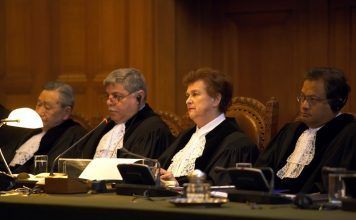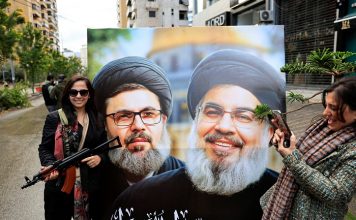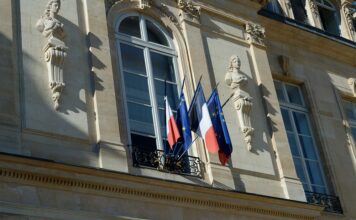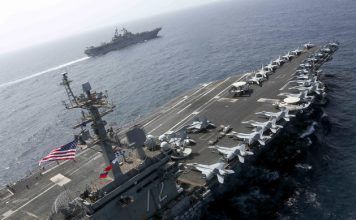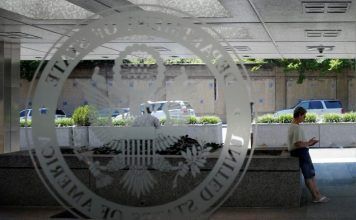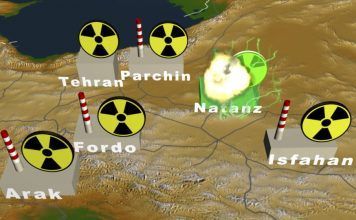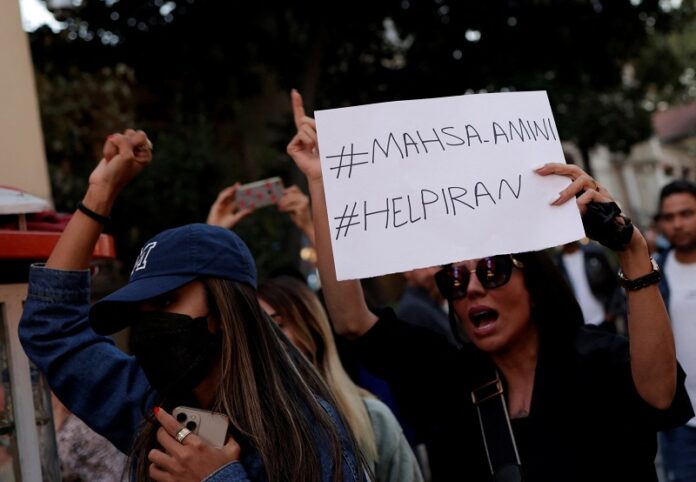
By Potkin Azarmehr
Iran has risen again, this time with a fervor and a determination unlike anything the country has seen before. Yet there is still some reluctance among Western leaders to contemplate regime change in Iran.
It is said that some Western officials fear a repeat of what happened in Syria and Libya, and that a power vacuum in Iran would further destabilize the region. There are also concerns that mounting tensions could create more fuel shortages and lead to oil prices soaring, at a time when the energy supply has become a paramount consideration for the West’s survival.
In this opinion piece, I will endeavor to explain why these fears are unfounded — how a post-Islamic-Republic Iran will actually stabilize the region and help the world’s energy supplies.
Iran’s protesters and its population are nothing like the Islamist opposition to the secular dictatorships in Syria and Libya that the West unwisely backed. The overwhelming majority of the population in Iran and of the protesters are secular, pro-Western, pro-Israel, and fed up with political Islam. This is clearly reflected in the slogans that the protesters are crying out across the country:
“We don’t want an Islamic Republic”
“Until the Mullahs are all buried, Iran will not be Iran”
[aesop_image img=”https://kayhanlife.com/wp-content/uploads/2022/10/protestoctober341.jpg” panorama=”off” credit=”#IranProtests, October 2022. KL./. REUTERS./” align=”center” lightbox=”off” captionsrc=”custom” captionposition=”left” revealfx=”off” overlay_revealfx=”off”]
The protests, now into their fifth week, started with the death of a 22-year-old Iranian woman, Mahsa Amini, inside the so-called “reeducation center” of Iran’s much-hated “morality police.” Mahsa was detained for not fully observing the country’s mandatory Islamic hijab laws.
Make no mistake, however: Even if the protests were triggered by the rage against the much-hated “Morality Police” and the mandatory hijab laws, they have fully and firmly grown into a nationwide revolution to topple the Islamic Republic and the four-decade-long religious dictatorship of the Ayatollahs in Iran.
The nationwide protests in Iran and the massive demonstrations outside Iran clearly show that the overwhelming majority of Iranians do not want to be ruled by the mullahs. So the leaders of the free world must prepare themselves for a post-Islamic Republic Iran.
It is not a question of if. It is a question of when.
The Islamic revolution of 1979 turned Iran into a Shia Islamic state. Islamic fundamentalism, which had gone into hibernation while the Middle East was ruled by a mix of nationalism and socialism, was once again rekindled. The victory of the anti-Western Islamic Revolution in Iran bolstered the Islamists in the rest of the Middle East.
Organizations such as the Muslim Brotherhood, which were in part funded and supported by the British to combat Arab nationalism, were encouraged with the victory of the Ayatollahs in Iran to resume their activities. The new Islamic Iran led the paradigm in the region for political Islam to resurface. Even Sunni extremists such as Bin Laden, the leader and founder of Al-Qaeda, who was an antagonist of Shia Islam, shared Khomeini’s anti-Semitism and hostility towards the West, and was inspired by Khomeini’s movement.
The Islamist resurgence soon extended from the Islamic countries to the West itself, and it has been turning into a homegrown security threat in Europe. There have been numerous terrorist attacks by Islamists in European cities, causing deaths and casualties among innocent civilians.
Yet just as Islamic extremism thrived and was resurrected with the establishment of the Islamic Republic in Iran, it will flounder with the fall of the regime of the Ayatollahs.
For Islamists around the world, the fall of the Islamic Republic will be very much like the fall of the Soviet Union was for Communists internationally. Iranians will be able to share their experiences of the failures, the corruption and the futility of political Islam with other Muslims around the world.
Soon after the Shia Islamists won in Iran, the export of the revolution and the support for other Jihadists became enshrined in the new revolutionary government’s constitution. It translated into Iran becoming the biggest sponsor of terrorism, and the main source of instability in the region.
The Islamic Republic of Iran’s constant meddling in Iraq and Afghanistan resulted in America’s failures there, billions of dollars wasted, and thousands of lives lost. Iran’s aim of destabilizing Iraq and Afghanistan fueled more sectarianism and extremism and led to permanent instability.
Islamist rule in Iran has been a serious threat to Israel’s security and an obstacle for reaching longlasting peace in the Middle East.
Iran’s tentacles have reached beyond the Middle East. The regime of the Ayatollahs in Iran has built strategic alliances with Venezuela and other rogue states in Latin America, and expanded its influence into Africa and Western Europe.
The fall of the Islamic Republic will deprive Hezbollah, the Jihadists, rogue states and other terrorists of their chief sponsors, and help bring stability back to the region.
There are two elements that lead to the overthrow of a regime. One is when the people reach the end of their tether to the point of no longer fearing death. So many of the protesters have told me: “We know that we risk being killed by joining the protests, but the alternative is living for many more years under this regime, and that is a slow and prolonged suffering that we don’t want.”
Indeed, so much of the footage from recent protests shows that the protesters no longer fear the security forces. They are not running away, but rather taking them on, and it is the anti-riot troops, once much feared, who are on the run.
The other requisite is for sections of the armed forces to mutiny and join the protesters. While we have not reached this stage yet, there are calls from the population for the regular army to join the protesters. Meanwhile, regular, lower-rank police officers appear unwilling to use maximum force.
If the protests continue and an opportunity arises, there is a very good chance that sections of the armed forces will refuse to obey orders and join the uprising. The overthrow of the mullahs in Iran has never seemed so close.
Western leaders and policy makers doubt that there is a viable and credible opposition to the mullahs. It is naive to expect a functioning opposition party to emerge in a dictatorial state such as that of the Ayatollahs.
It is also true that the Iranian opposition outside Iran is unorganized and mostly ineffective. Yet individual Iranian opposition figures have automatic legitimacy. They can lead the transition period after the fall of the regime and prevent Iran from spiralling into chaos and anarchy.
At the same time, during this transition period, new political parties can form and compete in a free election for a new government.
And not only will the collapse of the regime of the Ayatollahs NOT lead to a worsening energy crisis: it will help alleviate it. Iran produced 6 million barrels of oil a day in 1975 before the Islamic revolution. Because of gross mismanagement, lack of maintenance and negligence, the maximum amount of oil that Iran has managed to produce since the Islamic Revolution is 3 million barrels a day. Output currently stands at around 2 million barrels a day.
Iran also has the second highest gas reserves in the world. But again, it is unable to utilize much of it, because it does not have the technology to extract the natural gas. What it does manage to extract cannot be exported to Europe because of political risks and high levels of domestic Iranian consumption.
A modern Iranian state will be able to increase oil production and export its gas.
Iran will no longer be under sanctions, and have to do as the Russians tell it to do. Russia will lose a strategic ally that has toed the Kremlin line ever since President Vladimir Putin came to power.
The free world and Iran itself have nothing to lose from the overthrow of the Islamic Republic. They have everything to gain.
Prince Reza Pahlavi : ‘The Alternative to the Islamic Republic is the Iranian nation’


